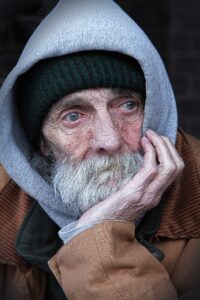Who Do We Want to Be as a Community?
Find the goodness in everyone
and pass it on with kindness.
Dolly Parton

Pat is co-founder of Living with Kindness. Proud mother of two and grandmother of three, she is a writer with a background in social services, social justice and mediation.

I am deeply moved by this week’s comments on individuals who are homeless and love this quote– thanks for including it!
Father Greg Boyle is the founder of Homeboy Industries in Los Angeles who asks us to consider this:
Here is what we seek: a compassion that can stand in awe at what the poor have to carry, rather than stand in judgment at how they carry it.
I am currently working locally in the Boston area within a community of chaplains who work openheartedly with individuals who are unhoused. I participate in a grief group and an interfaith service that includes both community members like myself, chaplains who are compassionate beyond belief and other residents. We see and hear one another— which in itself is a great experience!
thanks for your kindness, Pat and Larry for your love and caring.
Happy Moms Day to you caring mothers out there.